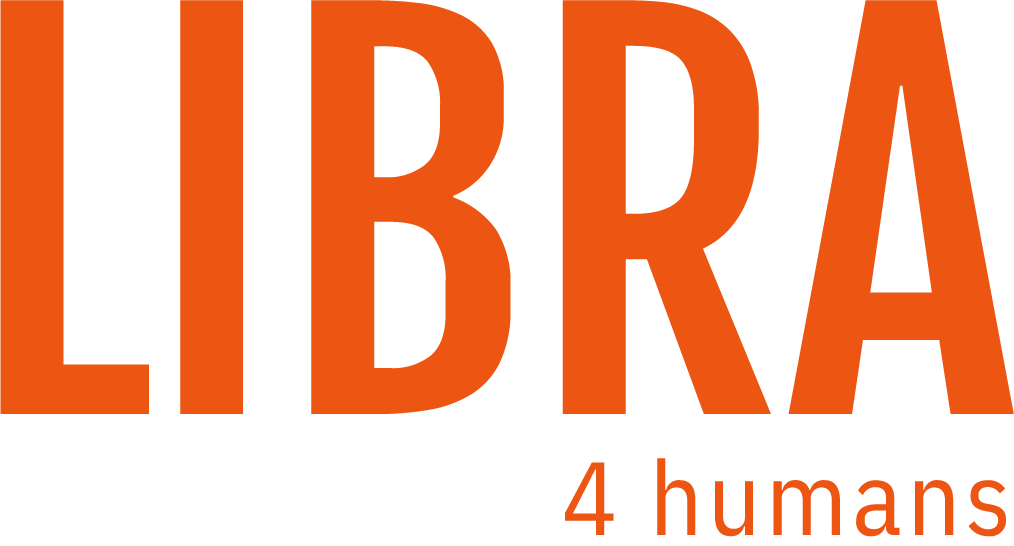SEO principles are essential for improving your website’s search engine ranking and attracting organic traffic in the ever-evolving landscape of web and search engines. This article will explore key strategies like keyword research, content creation, and technical SEO.
Key Takeaways

Understanding search engine optimization is essential for driving organic traffic and improving website visibility on search engines.

Keyword research, particularly focusing on long-tail keywords, is crucial for aligning content with user intent and increasing targeted traffic.

Effective on-page SEO techniques, quality content creation, and enhancing user experience are key strategies for achieving higher search engine rankings and improving your website’s search engine ranking.
Understanding Search Engine Optimization

SEO, or search engine optimization, is the practice of enhancing a website to improve its visibility on search engines like Google through search engine marketing. The evolution of web and search engines has significantly influenced SEO practices, transitioning from basic content translation to advanced techniques like localization. This visibility is crucial as it drives organic search traffic, which is not only cost-effective but also highly targeted. Over 85% of users rely on Google for their search needs, making a strong SEO approach indispensable.
The evolution of SEO is driven by advancements in technology and changing user behaviors. Modern search engines analyze countless factors, from keyword relevance to user intent, to deliver the most accurate search results. Understanding these evolving algorithms helps maintain a high search engine ranking.
A robust SEO strategy encompasses various elements, including keyword research, on-page and off-page SEO, technical optimizations, and content marketing execution. Mastering these components allows websites to achieve higher visibility, attract more qualified visitors, and build credibility.
Keyword Research and Strategy

Keyword research forms the cornerstone of any effective SEO strategy. It involves identifying the search terms your target audience uses, focusing on terms related to your business’s content. This helps prioritize search terms that drive meaningful traffic to your website.
As Google’s algorithm advances, grasping user intent behind search queries becomes crucial. Rather than keyword stuffing, focusing on relevant keywords that align with user intent enhances search rankings.
Keyword Research Tools
Keyword research tools like Semrush and Ahrefs are vital for identifying search queries that match user intent, offering valuable insights into keyword metrics and ranking opportunities. Examining the first page of Google search results and related google searches for target keywords offers a realistic view of keyword effectiveness.
After brainstorming seed keywords, expanding them using these tools can uncover additional keywords related to specific brands, products, and features, which are crucial during the evaluation stage.
Long-Tail Keywords
Long-tail keywords, which are more specific and less competitive, are crucial for SEO success. These keywords often attract more qualified traffic and are easier to rank for. According to Ahrefs, a staggering 92.42% of all keywords are long-tail keywords, underscoring their importance.
Using long-tail keywords attracts highly relevant traffic, significantly improving your website’s search engine ranking and overall visibility.
Creating High-Quality Content
High-quality content aligned with user search intent is vital for effective SEO. In the context of the evolving web and search engines, creating content that meets user needs and search engine criteria is more important than ever. It enhances site authority, increases the likelihood of reaching your target audience, and improves conversion rates. Content that engages and answers user queries can enhance your ranking potential in search engine results pages.
Steering clear of duplicate content and keyword stuffing is crucial, as these practices harm your website’s visibility and performance. Optimized content attracts search engine traffic, improves click-through rates, and ultimately drives more organic traffic to your site. Thus, on-page SEO becomes a critical aspect of your overall SEO strategy.
On-Page SEO Techniques

On-page SEO involves optimizing various elements within your website to improve its search engine rankings. This includes optimizing the website structure, meta tags, headlines, and URLs. Effective on-page optimization helps search engines understand your content better, leading to improved rankings.
Using relevant keywords in title tags, meta descriptions, and headings is a fundamental aspect of on-page SEO. Proper internal linking strategies can also enhance your website’s overall SEO performance by connecting high-authority pages to low-authority internal links.
Optimizing Meta Descriptions
Clear and compelling meta descriptions influence search engine users’ decisions to click on your link. Such descriptions can significantly increase click-through rates (CTR) from search engine results pages.
The ideal length for meta descriptions is approximately 155-160 characters to ensure full visibility in search results. Well-optimized meta descriptions improve SEO performance and boost user engagement.
Title Tag Best Practices
Relevant keywords in title tags enhance your page’s relevance and visibility in search results. Title tags should ideally remain under 60 characters to prevent truncation in search results, ensuring that users can see the full title.
Optimized title tags are a crucial on-page SEO technique, significantly impacting your website’s search engine ranking.
Technical SEO Fundamentals

Technical SEO enhances a website’s performance, simplifying how search engines discover, comprehend, and store site content. The evolution of web and search engines has made technical SEO more complex and essential for maintaining high search engine rankings. Core Web Vitals metrics, such as page load speed and layout stability, are used to gauge user experience and are crucial for SEO success.
The structure of a website significantly impacts how effectively search engines can crawl and index its web pages. Using an XML sitemap can facilitate search engines in locating and indexing important pages on your website. Additionally, addressing duplicate content issues is vital for maintaining a strong SEO performance.
Regular technical SEO audits identify and resolve emerging issues as your website evolves. Mobile-friendliness and structured data implementation are also critical components of technical SEO.
Backlink Building Strategies
Backlinks are a crucial ranking factor as they indicate trust and authority. High-quality backlinks improve search engine rankings and authority, making them more important than sheer quantity.
Building high-quality backlinks involves creating valuable content, outreach, broken link building, and guest blogging. The ‘Skyscraper Technique’ involves creating superior content that outperforms existing resources to attract backlinks. Converting unlinked brand mentions into backlinks is another effective strategy. Social media links, while often nofollow, can still drive traffic and enhance the visibility of your content.
Enhancing User Experience (UX)
User experience (UX) can significantly influence SEO performance. A well-structured UX improves user satisfaction and retention, which in turn enhances site visibility. Integrating effective SEO strategies with user-centered design helps create experiences that satisfy both users and search engines.
Fast loading times prevent user frustration and reduce bounce rates. Mobile optimization is also important as a growing number of users access websites via mobile devices.
Local SEO Tactics
Local SEO enhances your website and online visibility, aiming to improve your rankings in local search results. This is crucial for attracting customers from specific geographic areas. Optimizing a Google Business Profile can significantly enhance visibility in local search results.
Engaging with customer reviews and using Q&A features on your Google Business Profile improve local engagement. Consistent updates and posts on your profile keep your audience informed and engaged.
International SEO and Markets
International SEO involves optimizing your website for search engines across multiple countries and languages. This process is crucial for businesses looking to expand their reach globally. Understanding the target audience’s language, culture, and search behavior is fundamental to successful international SEO. Each market has unique characteristics, and tailoring your approach to these specifics can significantly enhance your search engine rankings.
Conducting thorough keyword research in each target market is essential. This helps identify relevant keywords and phrases that resonate with local users. Creating content that speaks directly to the target audience in each market is vital. This not only improves user engagement but also boosts your website’s visibility on search engines.
Using tools like Google Search Console is highly recommended for monitoring and optimizing your website’s performance in different markets. This tool provides valuable insights into how your site is performing in various regions, helping you make informed decisions.
International SEO also requires a deep understanding of local search engines, such as Baidu in China and Yandex in Russia. Each search engine has its own algorithms and ranking factors, and optimizing for them can improve your visibility in those markets. Building high-quality backlinks from local websites can further enhance your search engine rankings, establishing your site as a trusted authority in each region.
Measuring SEO Performance and Search Engine Rankings

Measuring SEO performance improves strategies and supports data-driven decisions. Google Search Console and Google Analytics are pivotal tools for tracking various metrics related to SEO performance.
Analyzing discrepancies in data from Search Console and Google Analytics aids in understanding overall site performance and user behavior. Regular reporting intervals facilitate ongoing assessment and tracking of SEO performance improvements.
Using Google Search Console
Google Search Console is an indispensable tool for any website owner aiming to improve their search engine rankings. This free tool helps monitor and optimize your website’s performance in Google search results. Setting up Google Search Console is particularly crucial for international SEO, as it provides insights into your website’s performance across different markets.
One of the key benefits of Google Search Console is its ability to identify technical issues that can impact your search engine rankings. These include crawl errors and mobile usability issues, which can hinder search engines from properly indexing your site. The tool also provides data on search queries, impressions, and clicks, which are invaluable for keyword research and content optimization.
Google Search Console offers several features to improve your website’s crawlability and indexability. These include sitemap submission, robots.txt testing, and URL inspection. Regularly monitoring the data provided by Google Search Console can help you identify opportunities to enhance your website’s performance and search engine rankings.
In summary, Google Search Console is an essential tool for any website owner looking to improve their online presence and search engine rankings. Its comprehensive features and insights make it a cornerstone of effective SEO strategy.
The Role of Social Media in SEO
Social media promotes content, increases visibility, and can lead to more backlinks and traffic. Recent reports show that 80% of marketers indicated social media has increased their website traffic.
Social media presence can indirectly influence SEO by driving traffic and engagement, enhancing overall SEO performance through increased visibility and traffic.
Avoiding Common SEO Mistakes
Avoiding common SEO mistakes is crucial for maintaining and improving your search engine rankings. One of the most frequent errors is keyword stuffing, which involves overusing keywords in your content. This practice can lead to penalties from search engines and negatively impact your rankings.
Another common mistake is neglecting to optimize website images. Large, unoptimized images can slow down your page load speed, which is a critical factor for search engine rankings. Ensuring that your images are properly optimized can improve your site’s performance and user experience.
Failing to create high-quality, engaging content is another pitfall. Content that doesn’t resonate with your audience can harm your search engine rankings and user engagement. It’s essential to focus on creating valuable content that addresses your audience’s needs and interests.
Not optimizing your website structure and internal linking can also be detrimental. A well-structured website with effective internal linking helps search engines crawl and index your pages more efficiently. Ignoring technical SEO issues, such as crawl errors and mobile usability problems, can further impact your search engine rankings.
Regularly monitoring your website’s performance and analytics data is crucial for identifying opportunities to improve your search engine rankings. Staying up-to-date with the latest SEO best practices and algorithm updates is also essential. Search engines are constantly evolving, and keeping abreast of these changes can help you maintain and improve your rankings.
SEO as an Ongoing Process
SEO is not a one-time task but an ongoing process that requires continuous effort and optimization. Search engines are constantly evolving, and algorithm updates can significantly impact your search engine rankings. Staying updated with these changes is crucial for maintaining and improving your rankings.
User behavior and search intent are also continually changing. To stay relevant, your website content and optimization strategies must adapt to these shifts. Regularly creating high-quality, engaging content is essential for attracting and retaining your audience. This not only improves user engagement but also boosts your search engine rankings.
Monitoring your website’s performance and analytics data is vital for identifying opportunities to enhance your search engine rankings. Tools like Google Search Console and Google Analytics provide valuable insights that can inform your SEO strategy.
Staying up-to-date with the latest SEO best practices and algorithm updates is essential for maintaining and improving your search engine rankings. SEO is a long-term strategy that requires patience, dedication, and ongoing effort. By continuously optimizing your website and adapting to changes, you can achieve and maintain SEO success.
Summary
Throughout this guide, we’ve explored the essential principles of SEO that will help you succeed in 2025. From understanding the basics of SEO to leveraging advanced techniques like technical SEO and backlink building, each aspect plays a crucial role in boosting your website’s visibility and performance.
By implementing these strategies, you’ll be well-equipped to navigate the dynamic landscape of SEO, ensuring your content remains relevant and your website thrives. Remember, continuous learning and adaptation are key to staying ahead in the ever-evolving world of SEO.
Frequently Asked Questions
Why is keyword research important for SEO?
Keyword research is crucial for SEO because it uncovers the terms your target audience is searching for, which in turn drives relevant traffic to your site and enhances your search engine visibility. Prioritizing effective keywords ultimately boosts your site’s performance in search results.
What are long-tail keywords and why are they important?
Long-tail keywords are specific and less competitive search terms that enhance your website’s visibility and attract more qualified traffic. Their focused nature makes them easier to rank for and valuable for targeting niche audiences.
How can I improve my website’s user experience?
To improve your website’s user experience, focus on fast loading times, mobile optimization, and clear navigation structure. These elements are crucial for enhancing user satisfaction and retention.
What role does social media play in SEO?
Social media plays a crucial role in SEO by promoting content, increasing visibility, and driving traffic, which can result in more backlinks and improved engagement. This indirect relationship enhances overall SEO performance.
How do I measure my SEO performance?
To effectively measure your SEO performance, utilize tools such as Google Search Console and Google Analytics to track key metrics, which will guide your data-driven decisions and strategy adjustments.






